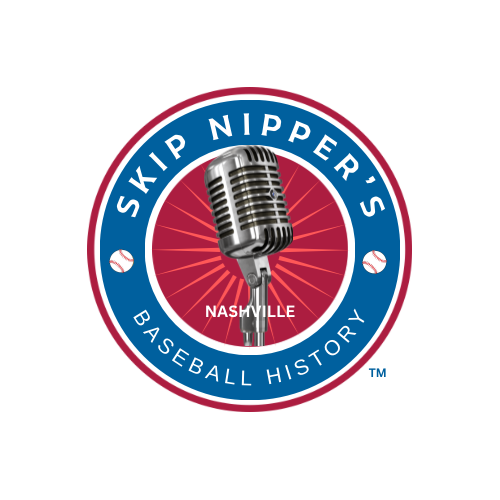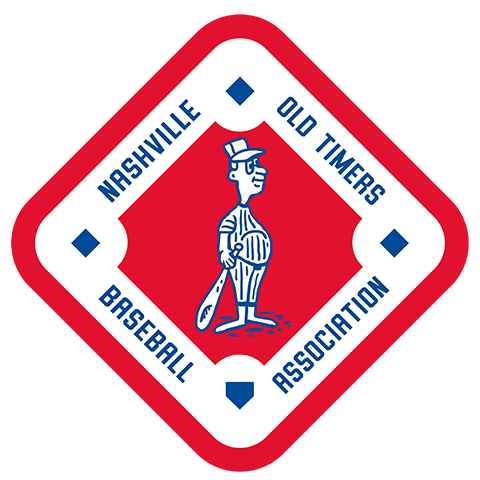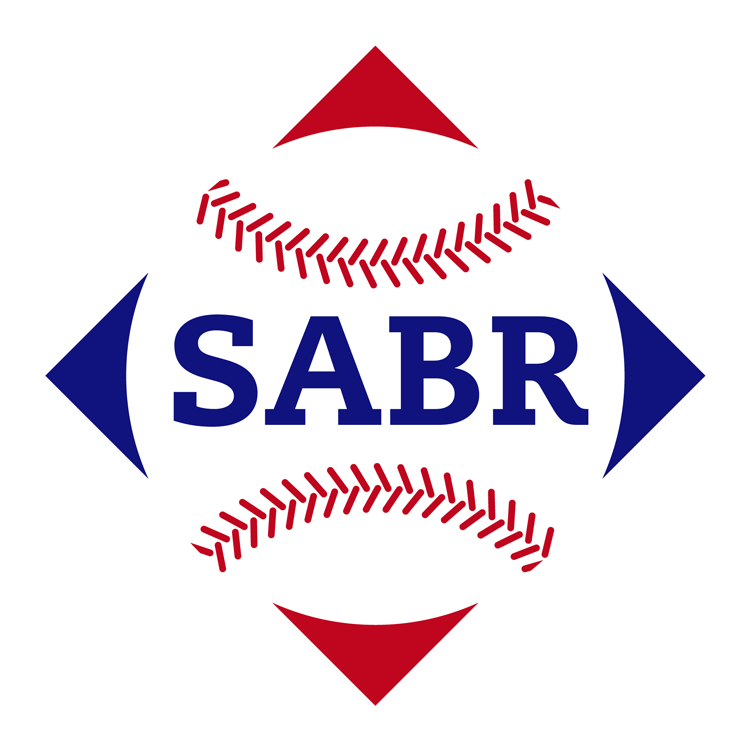
Pitcher George Heller accomplished a remarkable feat for the Nashville Vols in 1952, one that has rarely taken place; he won two games in one day. It has been accomplished 10 times in the American League and 35 times in the National League and last occurred in the major leagues on August 28, 1926 by Cleveland pitcher Dutch Levsen.
Difficult to establish how many times it may have happened in the minors, Heller did it on June 1, 1952, his debut in a Nashville uniform.
His journey began in spring training. On March 17, after two hours of batting practice, manager Hugh Poland sent his Nashville charges up against Minneapolis as part of a long spring training session in Melbourne, Florida. Not expecting mid-season form out of his pitching corps, Clyde Stevens and Roy Pardue turned in impressive performances, shutting out the Millers and not allowing a single hit in the six-inning game.
Each one tossed three innings, Stevens exhibiting excellent control and a sneaky fastball that had helped him to a 12-9 record with Jacksonville the previous season, and Pardue’s fastball allowed only two balls to be hit out of the infield. He was a product of Nashville’s North High School, and it was his first performance as a pro.[1]
The Vols rapped out four hits, scored two runs, and won over the AAA American Association club, 2-0, and far out shadowed 24-year-old lefty George Heller who pitched the last two innings against Nashville.
Born in Honesdale, Pennsylvania on July 27, 1927, Heller had seven minor league seasons under his belt when he began spring training in 1952. To begin his professional career, George played three seasons in the lowest classifications of the minor leagues: Salisbury (North Carolina State League – Class D) in 1945, Hornell, New York (Pennsylvania-Ohio-New York League – Class D), and Carbondale, Pennsylvania (North Atlantic League – Class D).
In 1948 with Vandergrift, Pennsylvania (Middle Atlantic League – Class D) he had his best year: 20 wins against four losses, and a 2.75 ERA for the Pioneers, a Philadelphia Phillies farm club. Signed by the New York Giants after his productive season, he was sent to Jacksonville (South Atlantic League -Class A), where he was 6-6 and appeared in 46 games and earned another promotion.
Jersey City (International League – Class AAA) was one of two minor league affiliates at the highest level of classification (the other was Minneapolis), and George appeared 33 games for them in 1950, starting five games and completing two. His ERA was 3.36 for the season, but he had allowed only 60 hits in 67 innings and gave up less than one walk per inning with a total of 52.
When the parent Giants moved their affiliation to Ottawa (International League – Class AAA), George moved to the Canadian club. Hugh Poland, a former player and scout for the Giants, had managed Sioux City (Western League – Class A) in 1950, but had become the Ottawa manager for 1951. Heller was 4-7 with an inflated 4.45 ERA for Poland.
On May 29, 1952, George joined the Vols from Minneapolis, where he had not seen much action in the early season,[2] pitching in only eight games for a total of seven innings. Poland had become Nashville’s manager, and needed help in his pitching roster as the team was laboring in sixth place in Southern Association standings with a 23-25 record.
Heller immediately made an impact, earning a pair of victories on his first day in a Vols uniform. On June 1, George made his first start in the first game of a double header in Chattanooga, pitching five innings and allowing eight hits and three runs while striking out one. He was lifted for pinch hitter John Kropf in the sixth inning with the bases loaded and down 3-2, and Kropf sailed one over the Engle Stadium wall for a grand-slam home run.
Awarded his first win, George was called on again by Poland in the second game. Sailing along with a Vols lead 8-3 in the fourth inning of the nightcap, reliever Pete Modica had been roughed up by Lookouts hitters by giving up seven hits and four runs in 2 2/3 innings after replacing starter Jim Atchley. John Uber gave up one hit in relief before Heller entered the game in the sixth inning with tying runs on base. He struck out sluggers Roy Hawes and Don Grate to quell the rally. In the seventh and final inning, Heller was lifted for a pinch runner and Dick Adair closed out the game.
Since Atchley had not gone five innings as starter, and Heller’s relief work was more effective than others, the score keeper gave Atchley the win.[3]
Two games, two wins, all on one day.
It is a remarkable feat that was more common in the early days of baseball. On September 9, 1876, Candy Cummings (who is credited with being the first to master the curveball), accomplished the feat for the National League’s Hartford Dark Blues against Cincinnati in the first scheduled double header in the history of the league.[4]
For Heller, it was his highlight of the year, as his season began to slide downhill. On June 11 in Mobile, Heller had to leave the game due to heat exhaustion. He lost his third game of the season on June 15 in the second game of a double header as the first five Atlanta Crackers he faced rapped out five hits and four runs.
Facing Mobile in Sulphur Dell on June 22, he walked six men in less than two innings and was replaced. In nine games with Nashville, he was 3-1 but had allowed 31 hits in 25 innings and given up 16 runs.[5] On June 25 he was knocked out of the box by Little Rock, but on June 28 he rebounded at Sulphur Dell with a complete game shutout of the Travelers, 7-0.
He lost his second game of the season in New Orleans on July 1, as his throwing error on Pelicans first baseman Dale Long’s ground ball began a rally for the opposing team. The Pels scored five unearned runs, six in all, and Heller was sent to the showers.
The Travelers were unmerciful to him on July 6 in Little Rock when he allowed four runs on four hits in the first inning. He was promptly pulled from the game. Over the course of the next few weeks he had a few spot starts and was ineffective in relief.
On July 31, Nashville general manager announced he had recalled pitcher Fred Sherkel from the Jacksonville, and Heller was sent to the Tars in exchange.[6] In 22 games George had pitched 64 innings, allowed 81 hits and 54 runs.
If there was any saving grace for him, it was because he and his wife had made their home in Jacksonville. He managed to recover his form by allowing only three earned runs in 41 innings, leading to a 4-1 record to close out the season before playing Winter Ball in Venezuela.[7]
George pitched for Sioux City in 1953 (4-8, 4.12 ERA) and was back with Jacksonville in 1954 (4-5, 2.64 ERA). In one final effort to remain a professional ballplayer, he pitched in 12 games and won one for Albany (Eastern League – Class A) before being released[8] and retiring. His lifetime record was 77-55 in 11 minor league seasons. His older brother James also pitched in the minor leagues, twice winning 20 games in his career.
He became an Industrial Engineer in his hometown, and in 1964 moved his family to Texas, then to Ardmore, Oklahoma. Heller passed away there on June 28, 2008 and is buried in Hillcrest Memorial Park in Ardmore.[9]
Note: The image of George Heller is taken from his obituary at Find-a-grave.com and is attributed to Sharon Rhoades.
Sources
Baseball-almanac.com
Baseball-reference.org
Find-a-grave.com
Newspapers.com
Retrosheet.org
Sabr.org
Notes
[1] Russ Melvin, “Pardue Shines in Vols-Miller Practice Game,” Nashville Tennessean, March 18, 1952: 18.
[2] Melvin, “Dick Adair Hurls 2-Hit Shutout, Vols Split,” Nashville Tennessean, May 28, 1952: 21.
[3] Melvin, “Heller Winner as Vols Climb 7-5, 8-7,” Nashville Tennessean, June 2, 1952: 14.
[4] David Fleitz. Candy Cummings, SABR Bio Project, (https://sabr.org/bioproj/person/99fabe5f) accessed June 1, 2017.
[5] “Vols—Day-by-Day,” Nashville Tennessean, June 25, 1952: 19.
[6] Melvin, “Ragged Vols Recall Sherkel From Tars,” Nashville Tennessean, August 1, 1952: 41.
[7] Raymond Johnson, “One Man’s Opinion,” Nashville Tennessean, December 18, 1952: 37.
[8] “Albany Club Acquires First Sacker,” The Timers Record (Troy, New York), June 9, 1955: 47.
[9] George Heller Obituary, http://www.thedeadballera.com/Obits/MinorLeaguers/Obits_H/Heller.George.Obit001.html, accessed June 1, 2017
© 2019 by Skip Nipper. All Rights Reserved.



